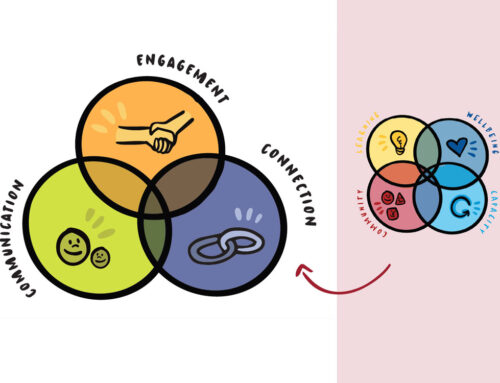INSPIRING THE NEXT GENERATION
 For Peta Antypas (’20) the decision to pursue a career in medicine was deeply rooted in her passion for science, advocacy, and a profound connection to her local community. A fourth-year medical student at the University of Tasmania, her journey has included the guidance of Dr John Saul (Scotch ’77), an experienced general practitioner who shares a similar commitment to serving the Tasmanian community. Paired by participating in Scotch Oakburn College’s mentor program, the duo has enriched each other’s lives, and hope to continue doing so for many years to come.
For Peta Antypas (’20) the decision to pursue a career in medicine was deeply rooted in her passion for science, advocacy, and a profound connection to her local community. A fourth-year medical student at the University of Tasmania, her journey has included the guidance of Dr John Saul (Scotch ’77), an experienced general practitioner who shares a similar commitment to serving the Tasmanian community. Paired by participating in Scotch Oakburn College’s mentor program, the duo has enriched each other’s lives, and hope to continue doing so for many years to come.
Forging a Meaningful Connection
Peta’s relationship with John blossomed from a mutual desire to make a positive impact in the lives of others. “He decided to stay in Tasmania and work as a doctor in a rural area,” Peta explained. “That really resonated with me because it was something I was considering but wasn’t sure how to approach.” John’s dedication to serving the community he grew up in struck a chord with Peta, inspiring her to follow a similar path.
A comparable confidence has also been instilled in John, now knowing the future of the medical profession will fare well in years to come due to people like Peta. “I feel we both contribute to each other’s lives, not necessarily me contributing as a mentor, because it’s so enjoyable to be engaged with such a great person,” John said. “To be honest it’s been fun for me being part of Peta’s journey and being a bystander to the wonderful things she is doing.”
Overcoming Adversity with Resilience
Beyond their shared values, Peta and John found common ground in an unexpected way. During a research seminar on Multiple Sclerosis, Peta discovered that the presenter was none other than John’s daughter, a researcher in the field. This serendipitous connection deepened their bond and fuelled Peta’s passion for neurology and the study of Multiple Sclerosis.
Her interest in neurology began several years earlier, when she experienced a neurological event that left her with a profound empathy for those facing life-limiting diseases. “Until you’ve dealt with suffering or pain yourself, you don’t really understand what it means to struggle,” she reflected. However, this experience only strengthened her resolve to make a difference in the lives of others. “I want to be part of their journey, like others were part of my journey,” Peta said, referring to the support she received during her own health struggles.
Giving Back to the Community
One of the most significant impacts John had on Peta was inspiring her to stay in Tasmania and contribute to the local community. “He said that as long as you come back here and do what you want to do, and use your skills to support your community, then you can still travel and have meaningful experiences,” Peta explained. This advice resonated deeply with Peta, who recognised the importance of giving back to the place that had nurtured her throughout her education. With Tasmania having one of the highest incidences of Multiple Sclerosis in the world, Peta saw an opportunity to make a tangible difference as a neurologist in her home state.
A Passion for Research and Advocacy
Peta’s commitment to neurology was further solidified when she received a student research scholarship from the Clifford Craig Foundation. Her project focuses on investigating the potential of probiotics to improve social cognition in individuals with Multiple Sclerosis. With a team of supervisors, including a GP, a neurologist, and a neuropsychologist, Peta is poised to make valuable contributions to the field. Her passion for research and advocacy is driven by a desire to provide hope and support to those living with debilitating neurological conditions.
A Holistic Education: The Impact of Co-Curriculars
While academic success at school played a role in Peta’s journey, she credits her involvement in co-curricular activities, particularly the Round Square program, as having the most profound impact on her personal and professional development. “My passion for neurology, my passion for people and my passion for staying in Tasmania is not because I study a lot. It’s because I learned about all those values at school,” Peta said. As she embarks on the next phase of career, her story serves as an inspiration to aspiring medical professionals. With the guidance of mentors like John and a strong foundation in values and ethical principles, she is poised to make a lasting impact on the lives of countless individuals.







